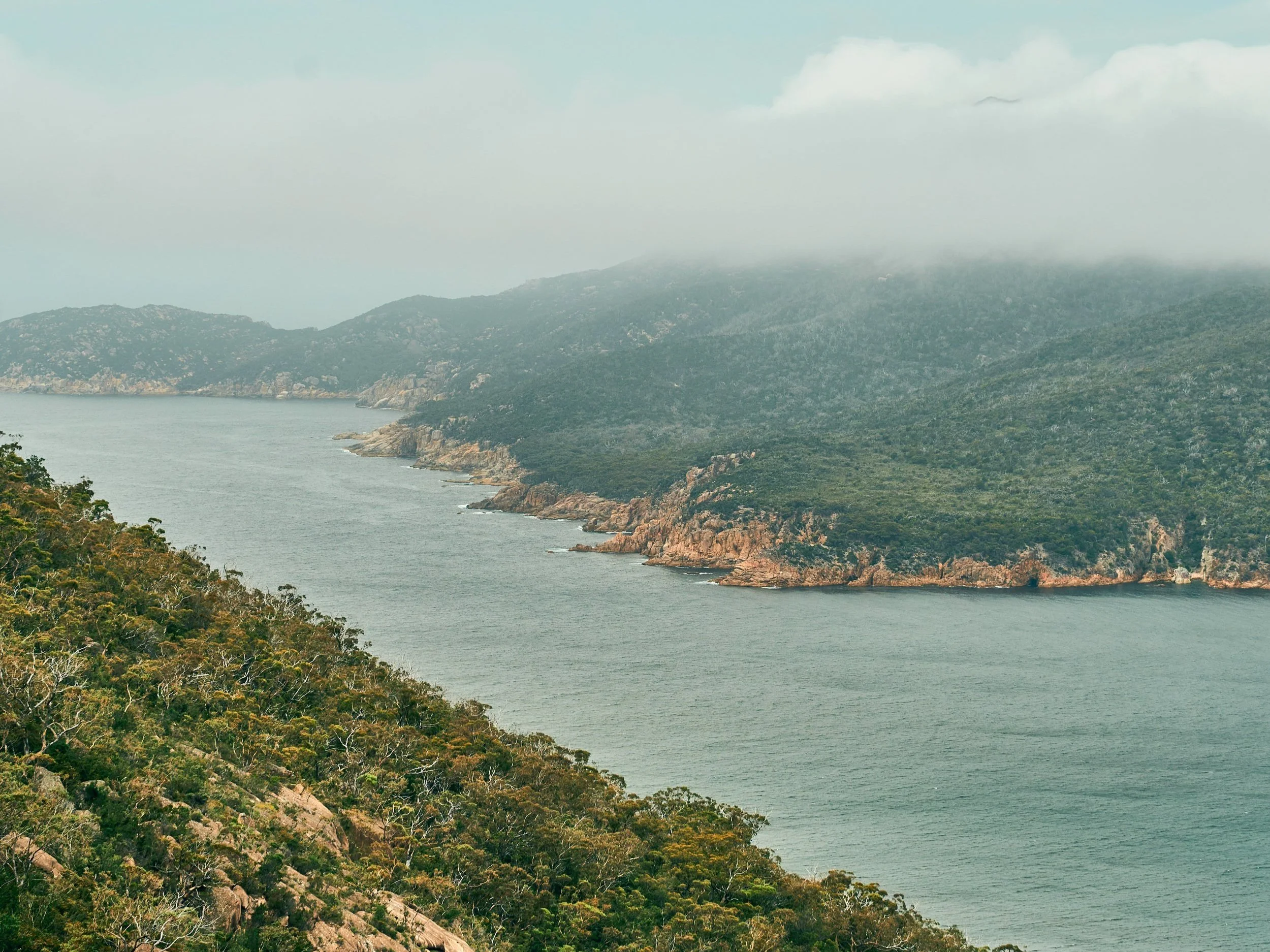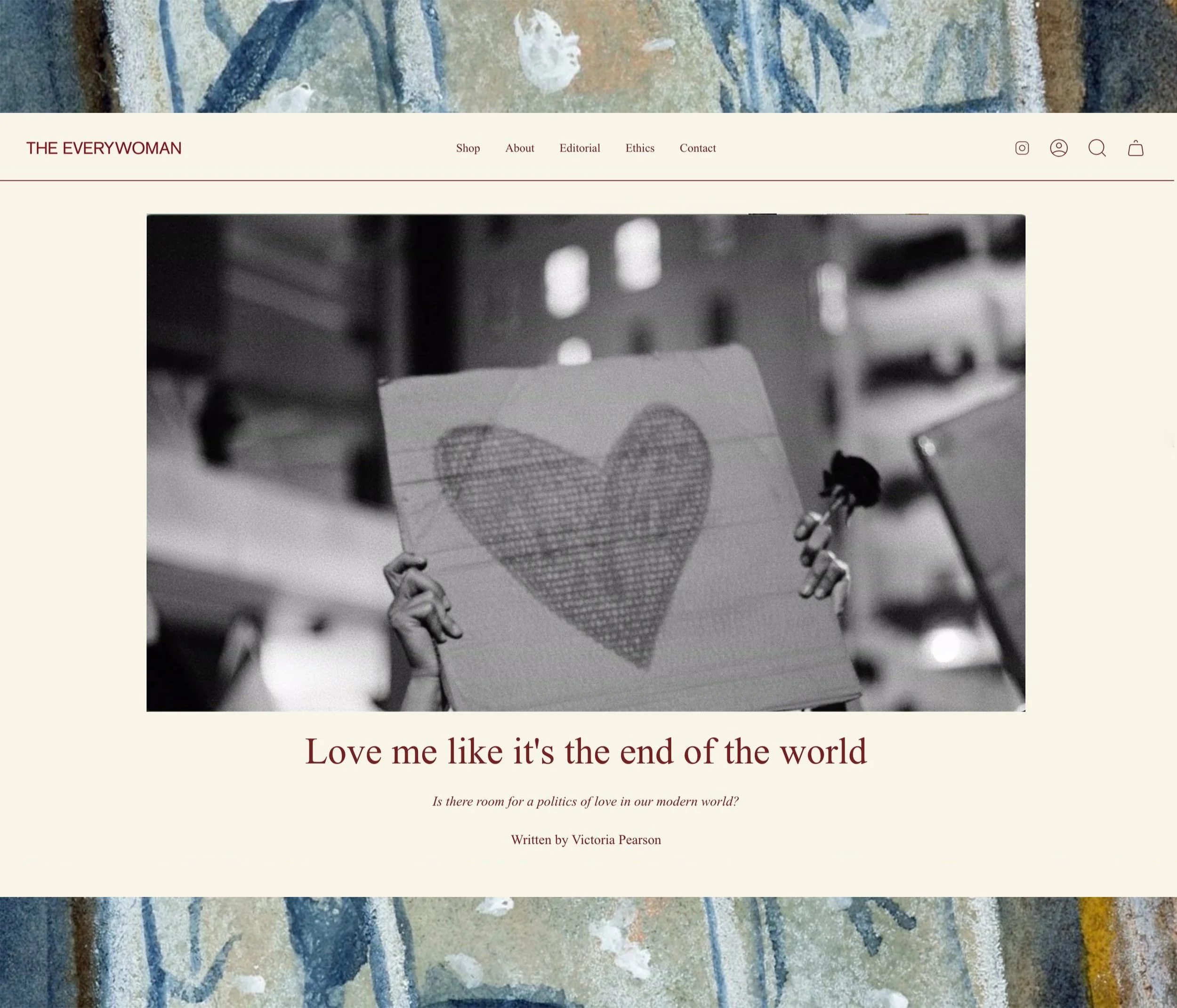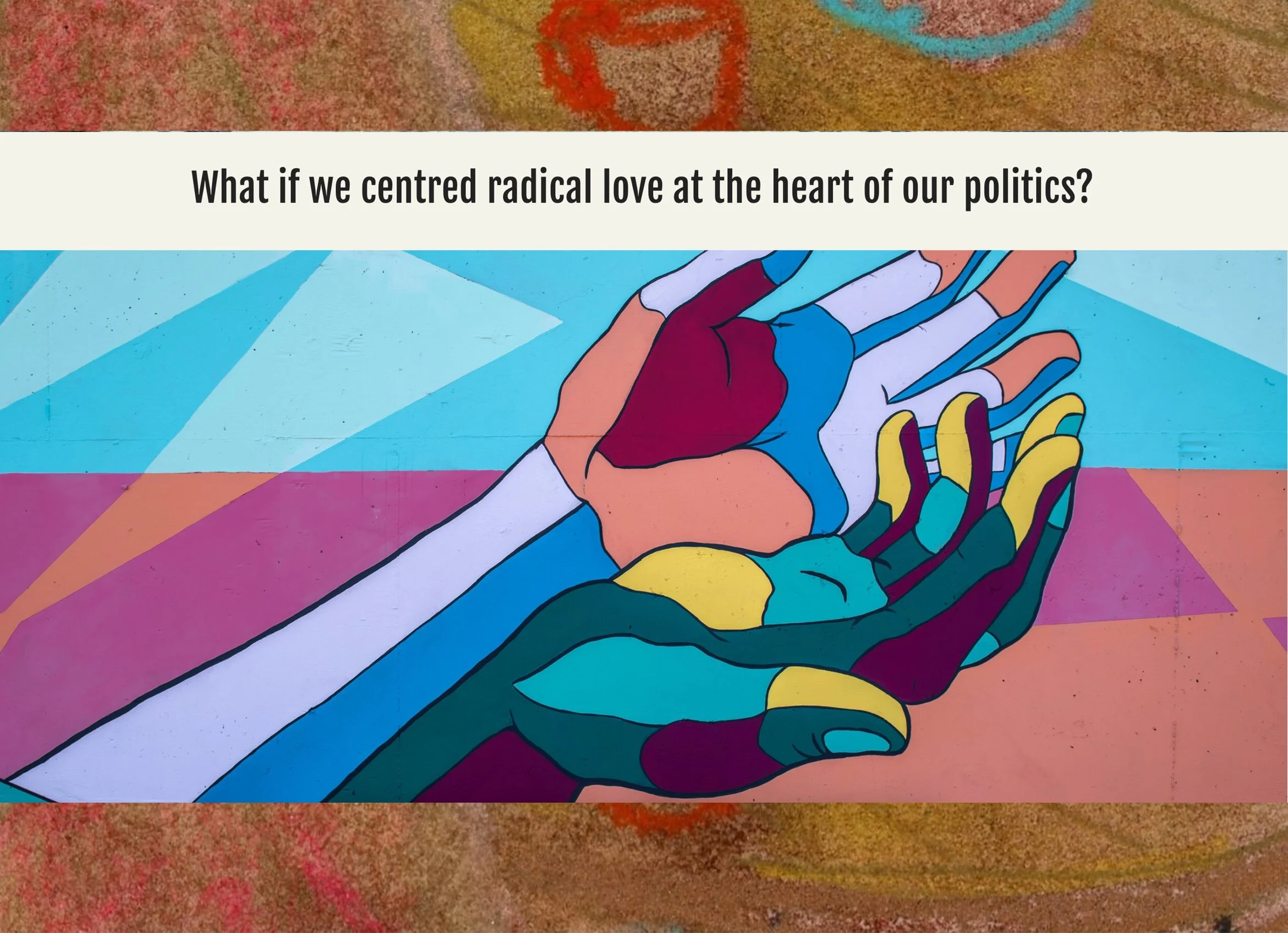“I love it here” - Love as an infrastructure
Image: Virul Weerasooriya (Unsplash)
“Let us not merely be pragmatic. Let us be excessive… Let us be ungovernable in our care. Let us stay with the ache, not bend into the melody.”
I love this quote. For me it is a reminder of why I do the work that I do, as an artist, an illustrator, a thinker and a lover of the world.
Bayo Akomolafe writes so beautifully about pragmatism and how it is used to justify all the things that our ‘leaders’ say cannot be done. It’s used to tell us we need to be ‘sensible’, to stay in the centre and to choose inaction because apparently there is no other alternative. Akomolafe shows us that pragmatism is not actually values free, rather it is an ideology of its own: one that “smooths over trouble, flattens contradiction, and disciplines possibility”. Our response, then, needs to be one of “ungovernable care”.
And what better way to ensure we are ungovernable in our care than by tuning into love as a force, love as infrastructure, a verb, a power. At its heart, Australia reMADE is built on love and it’s good to remember to revisit its importance.
Read this wonderful article here
Millie was recently interviewed for an article in The Everywoman magazine that asked the question Is there room for a politics of love in our modern world? We were both nervous that this would turn the powerful politics of love into something sugary and insipid (despite a long history of incredible activists speaking about love as power), but journalist Victoria Pearson understood exactly what we mean when we describe love as an infrastructure for survival.
“Millie Rooney, executive director of Australia reMADE, frames this plainly: “Knowing your neighbour is disaster infrastructure,” she tells me. Rooney’s work involves building new civic narratives that prioritise care and belonging over productivity or profit… It means ensuring everyone has enough to eat. That people have time to volunteer, to participate in civic life, to show up for each other. “There is nothing efficient about love,” she says. “And that’s its beauty”.
“…cynicism is a design feature — not a bug. It’s part of a neoliberal story that casts us as consumers, not citizens, and teaches us to shrink the circle of care to ourselves and our kin. We can, in part, thank the Iron Lady for that. “When Margaret Thatcher very famously said, ‘There's no such thing as society – there's just the individual and the family’, I think that puts up a massive wall between how far we are allowed to love,” says Rooney. And it’s an attitude that continues to render the language of love as too emotional, too feminine, or too unserious for political discourse.”
Pearson writes, “To talk about love in politics isn’t wishful. In a time of climate upheaval and cultural fragmentation, it may be the only reasoning vast enough to hold what’s left to come”.
I have been thinking about this a lot recently as I’ve reflected on the work of poet and activist Andrea Gibson. Andrea died this week and my corner of the internet was absolutely flooded with love for them and their poetry. Andrea wrote a lot about facing their death, grief, loss and love. Their poem I love it here is one that I think speaks to the contradictions of our time and the importance of loving what we can.
“You can walk through life believing everything is a miracle,” my therapist said, paraphrasing Einstein long ago.
“Or you can walk through life believing nothing is a miracle. Whatcha gonna choose?”
“Everything is a miracle!” I say these days, but that wasn’t my answer in the past.
Why did I go so long believing I owed this world my disappointment?
“I hate it here” writes every other person online.
But I love it here.
“I love it here” I whisper to the sky at 1am, while standing on my upstairs porch.
“I love it here” I whisper into my doctor's stethoscope, so she can finally hear my heart.
When I read this, all I could think was how much I, too, love it here. Andrea writes “I did not meet this life until I met its brevity”. They described how when they found out their cancer was terminal that they felt deep grief and fear but also a sense of relief. A feeling that their life was in their hands. When they watched the result of the US election they went through the same feeling and thought - “Our lives are in our hands. They always were, but it’s clearer than ever now”. In this context they describe how:
“there is no such thing as a moral emotion. No one owes the world their misery. What we owe the world is our active participation in finding creative and compassionate paths forward”.
I love this.
Louise Tarrant, one of the key thinkers here at Australia reMADE, also wrote about love. She wrote about the fear people (especially women) feel in talking about love as if it would somehow undermine their credibility and how this makes sense when: “Our politic revolves around core mantras entirely alien to such a values proposition. You know them: we live in an economy, our role is to consume… private is best, individuals are doing-it-for-themselves.. etc etc”. Louise says that despite this, we know people want a different story for us all. “One that centres on care and compassion, moors and connects, while allowing us to be inspired and to imagine”.
For Louise, this isn’t an imagined world, it’s very real and very present and the response to the Black Summer fires in 2020 was just one way this plays out, where we saw love exist “as a verb. A choice. A commitment. Love that is active, powerful, embracing — a love that creates something bigger than us all and that pushes us to be, collectively, our better selves”.
Louise concludes by saying not only can we talk about love in politics, but that we must create:
“a politics that puts beauty before numbers, that is for all of us, not just some, and that recognises our planet’s beauty and majesty not just its bounty”.
So much of the fate of our beautiful, remarkable, precious world is, as Andrea writes, in our hands. There is a freedom in realising this and approaching this predicament with the lens of love. Love is anything but efficient, which makes it the perfect counterbalance to the neoliberal worship of the efficient and pragmatic.
Our people and places deserve so much more than pragmatism as a response or a way to find answers and ways forward to what currently feel like overwhelming troubles. We have a force far more capable of responding properly to the complexity and contradictions of the current moment, than rational, efficient, pragmatism. Love offers a way in.
To finish with the the incredible bell hooks who literally wrote the book on love and politics:
“The moment we choose to love we begin to move towards freedom, to act in ways that liberate ourselves and others. That action is the testimony of love as the practice of freedom.”
Anna, for the Australia reMADE team
Image: Yujie Wang (Unsplash)






